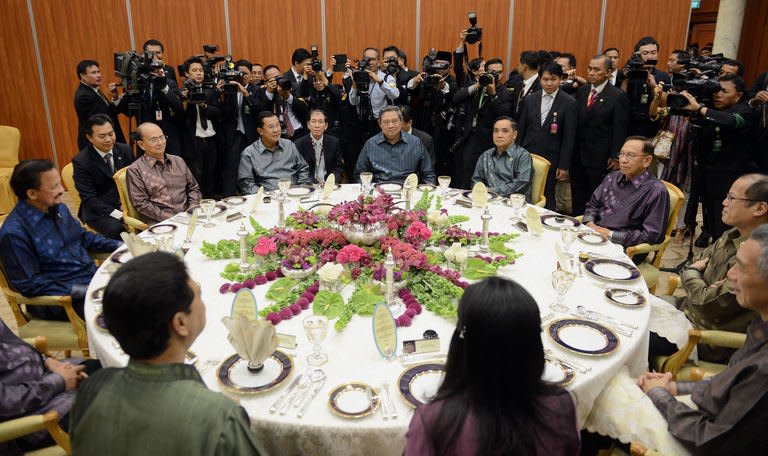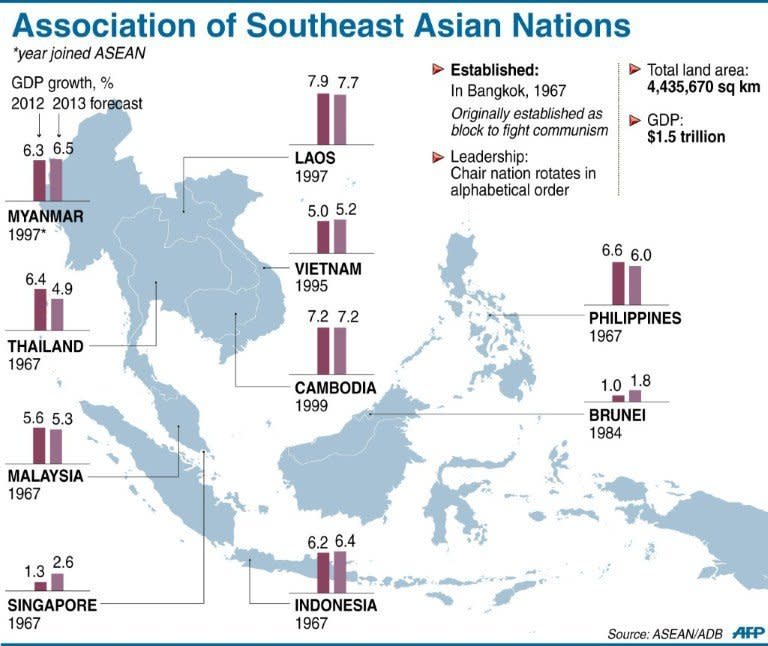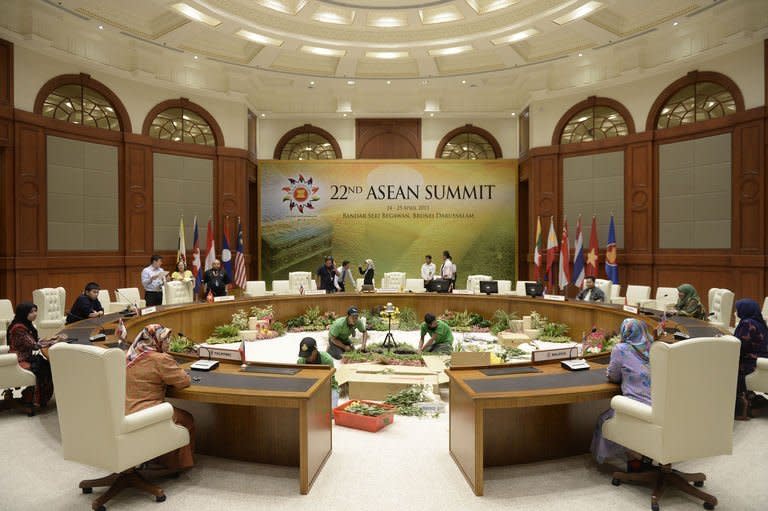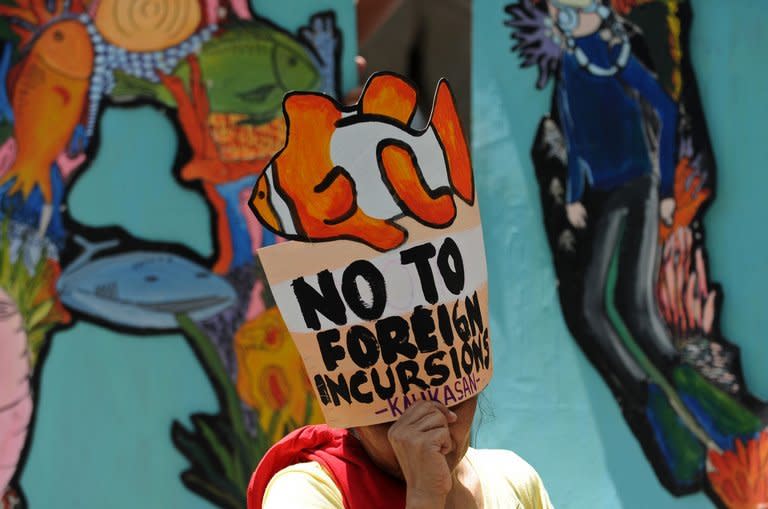Southeast Asian leaders talk China, trade
Southeast Asian leaders met in Brunei on Wednesday for talks aimed at easing tensions over the South China Sea and building momentum towards groundbreaking economic partnerships. The annual summit of the 10-member Association of Southeast Asian Nations (ASEAN) began in the capital of the oil-rich sultanate with a dinner in which the leaders were looking to rebuild unity after unprecedented infighting last year. The split was over how much pressure the group should try to apply to China over competing territorial claims to the resource-rich South China Sea. The Philippines and Vietnam, as well as China and Taiwan, claim parts of the sea, which is also home to some of the world's most important shipping lanes as well as rich fishing grounds. But a push by the Philippines and Vietnam for ASEAN to send a united message to an increasingly assertive China crumbled amid resistance from Cambodia, a close Chinese ally that held the rotating chair of the bloc in 2012. Philippine President Benigno Aquino said after Wednesday's dinner he was pleased Brunei's Sultan Hassanal Bolkiah had made the South China Sea issue a top priority at the summit, and that ASEAN had rebuilt some unity on the issue. "Everybody is interested in having a peaceful resolution and also in voicing ... concern that there have been increasing disputes," Aquino told reporters. "We should really be thankful that the whole of the ASEAN is willing to discuss this instead of putting it on the backburner." ASEAN leaders will make a united call in an end-of-summit statement for talks with China on the issue, but they will avoid any strong language, according to a draft of the document obtained by AFP. "We reaffirmed our commitment to ensuring the peaceful resolution of disputes without resorting to the threat or use of force, through friendly consultations in accordance with universally recognised principles of international law," the draft statement said. The draft repeated a call made regularly by Southeast Asian countries for an "early conclusion" on a legally binding code of conduct for the sea between ASEAN and China. But the draft made no mention of when they would hope to clinch a deal on the code. Brunei had said one of its priorities as this year's ASEAN chair was to see the code of conduct, initially proposed in 2002, agreed by the end of the year. However China, which prefers to negotiate directly with individual countries rather than a united ASEAN bloc, has refused to begin meaningful talks on the code, and has given no indication it is willing to start negotiations soon. Aquino, who wants a code secured as soon as possible, said Wednesday he was nevertheless happy ASEAN was now at least united in trying to ensure the disputes did not "become bloody". "So there is unity of purpose and one can always be hopeful that that will lead to something more concrete," he said. ASEAN leaders have said that one of the other key issues on the agenda during the two-day summit is pressing ahead with deeper economic integration within the bloc, and other countries in the region. The leaders are set to announce that ASEAN will begin negotiations next month with China, Japan, South Korea, India, Australia and New Zealand for a giant free trade pact, according to the draft end-of-summit statement. The Regional Comprehensive Economic Partnership (RCEP) aims to tie together ASEAN's free trade agreements with each trading partner, which would account for a third of the world's economic output, and is being strongly backed by China. ASEAN hopes to conclude the RCEP deal by the end of 2015. The block is also aiming to create a single market for the 10 Southeast Asian countries and its 600 million people -- known as the ASEAN Economic Community -- by 2015. That initiative is one of the other top items on the agenda in Brunei this week.





